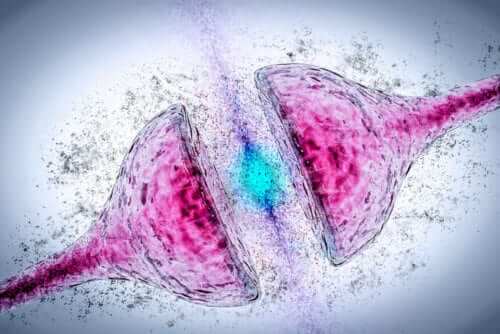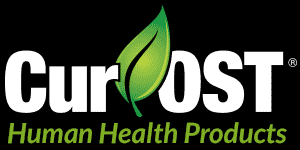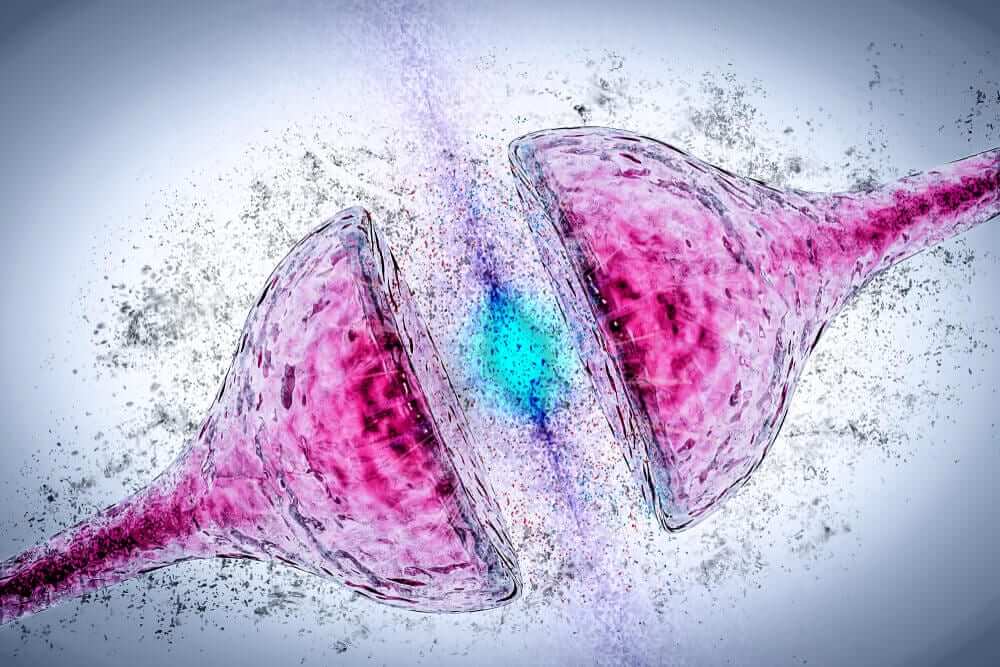Alzheimer’s disease is the 6th leading cause of death in the United States, with an increase in death rates climbing over 145% in the past 10 years. Over 5.8 million Americans of all ages suffer from Alzhemier’s and 1 in 3 seniorswill die from Alzheimer’s or similar cognitive related illness, which is a higher death rate than breast and prostate cancer combined. These statistics are provided by the Alzheimer’s Association and are quite startling to say the least. It is a slowly progressive condition with the average individual over the age of 60 surviving 4-8 years, while some progress for 20 or more years. We have come a long way in understanding Alzheimer’s, but still have a long way to go in the world of research. While treatment options are limited, with most being used in the hope of slowing progression, the use of the diet, specifically medium-chain triglycerides and ketones appear to be very promising, not just in slowing progressing, but potentially reversal. Could our food choices in the past and now contribute to Alzheimer’s and therefore open a door for recovery?

Alzheimer’s disease is usually thought of as just impacting memory and cognitive function, but it is a disease that kills and creates tremendous difficulty on caregivers for these patients. It is a slowly progressive disease condition and best treatment strategies are initiated early in the course, rather than later.
What Happens to the Brain in Alzheimer’s Disease?
Our brain is a very complex organ, utilizing up to 20% of the body’s energy sources. The brain is composed of nervous or neurological tissue, being neurons, which receive and transmit information between each other and to the rest of the body. Think of the neuron as being a person with outstretched hands and feet. The hands are the dendrites, which receive information from other neurons, which is then transferred to the body (cell body), and then the legs act as the axon, which transmits information out to other neurons. So, lock the image in your head of multiple people lying on the ground with arms outstretched and legs extended, with hands extending close to the person’s feet next you and so forth. Information is received by the hands, transmitted to the body for processing, and then finally out of the legs and feet to the next person’s hands. (dendrite, cell body, axon)
In Alzheimer’s disease, there is a loss of function of the neuron, mainly in receiving and transmitting information, which leads to loss of neuron function, atrophy and eventually death of the cell and the person over time. In most late stage cases of Alzheimer’s, there is brain atrophy, or shrinkage, due to loss of cellular function, which is likely irreversible. Considering that the brain is responsible for much of our bodily activities on some level, when brain function has deteriorated, the body fails.
Research in Alzheimer’s disease has pointed to several issues which contribute to the loss of neuron function including which revolve around 3 key aspects of cellular function:
- Communication
- Metabolism
- Repair and Regeneration
You have to keep in mind that the brain cells or neurons, are just like other cells in our body. They must communicate, they must maintain healthy metabolism including energy production and waste elimination, and they must adapt, repair themselves and regenerate. If any of these 3 facets is disrupted, then problems develop.
There are a few mechanisms for cellular or neuronal disruption in Alzheimer’s disease including:
- Beta-Amyloid Plaque Accumulation: which is the over accumulation of a naturally present protein which can inhibit communication between neurons, like creating a block between hands and feet in the above mentioned example. If this is done, signals cannot be relayed.
- Neurofibrillary Tangles: This is an abnormal accumulation of the Tau protein, which is normally present within the neuron cell to help support microtubules, which are needed to pass along nutrient support to the cell. In Alzheimer’s, Tau proteins unlock from their traditional role of supporting the microtubule and instead become attracted to one another and form large clumps, which then create ‘tangles’ inside the neuron and inhibit normal function.
- Chronic Inflammation: This can be a primary problem or a secondary event but appears to be present nonetheless. It can be present throughout the body or localized to the brain tissue, and impair a special glial cell called microglia, which are responsible for removing waste and toxic cellular material. As a result, waste can build up, inhibit normal cellular function, and contribute to more inflammation. There is also questions being raised regarding chronic inflammation in the body and cellular metabolism, such as localized insulin resistance in the brain, which impairs cellular or neuronal metabolism.
- Vascular Compromise: Cardiovascular issues may also be present in a high percentage of Alzheimer’s patients, which may be noted by impaired blood circulation, oxygen delivery, nutrient delivery and atherosclerosis.
Current Therapy Options for Alzheimer’s Disease
While there are no ‘cures’ for Alzheimer’s disease, the main objective in therapy is to slow progression and thus, hopefully, improve longevity and quality of life for the patient. In all actuality, current medications approved by the FDA for management of Alzheimer’s do very little to slow the disease and damage, but more so focus on memory, cognition, and enhancing neuronal receptivity to information.
The two main classes of medications being utilized include cholinesterase inhibitors (several brand names) and memantine , which again are used to manage the cognitive aspects of the disease, more so than the ongoing damage to the neuron or brain tissue. These medications essentially target neurotransmitters, which are chemicals relayed between neurons which assist in sending and receiving information. Their primary goal is to enhance this ability to transmit and receive information, rather than slow or reverse degeneration.
Along with medications, patients are encouraged to exercise, adopt a healthier diet, reduce stress, and sleep. Sleep can often be difficult as many Alzheimer’s patients are disturbed, overly anxious, and restless.
Alzheimer’s Disease and Cellular Metabolism
Cellular metabolism are the chemical processes which occur within cells that help to maintain or sustain life. These processes include energy production, waste removal, and generation of other chemicals within the cell to sustain function.
Our brain is very dependent upon energy production and utilizes a large portion of the energy created within our bodies to maintain normal function on a daily basis. Energy production by a cell is mainly dependent upon sugar or glucose, which is then taken into the cell and serves as a starting point for the energy cycle and production. In Alzheimer’s research, it has been noted that there is an impaired uptake of glucose by cells, which then leads to reduced energy production, and inevitably, reduced cellular function. The cells, just like a car, need energy in order to function. Take that energy source away and they will cease to function, atrophy, and die. (Cunnane, 2016)
In most cases where there is altered glucose uptake, this is related to some form of insulin resistance, as insulin is a main molecule that is needed to shuttle the glucose into the cell for utilization. In cases of insulin resistance, the main problem appears to be an altered cellular receptor on the surface of the receiving cell. Think of insulin as being a key that unlocks a lock. The key is normal, but somehow the lock has been changed and no longer fits the key, thus there is a failure of function. This alteration in the lock or cellular receptor is closely linked with the process of chronic inflammation in the body, and genetic alteration or mutation.
Bottom line? Cells in Alzheimer’s disease appear to be unable to process glucose and thus have a disruption in cellular energy production and cellular metabolism. This is one of the 3 steps in the creation of the disease as mentioned earlier in the article.
It has been proposed that if we could bypass this problem, the lack of proper glucose utilization, could Alzheimer’s patients benefit on some level??
MCT Oils, Ketones, and Alzheimer’s Disease
Cells in our body can create energy via two main sources; glucose and ketones or ketone bodies. The main preferred and traditional source for energy creation is sugar or glucose. However, our bodies do produce ketones in the liver, which are derived from the breakdown of various foods and specific fats. These ketones can be used as an ‘alternate’ energy source for the body and the cells.
The ketogenic diet or ketogenic approach to disease is not new and has been utilized in medicine for quite some time and also as an avenue for weight loss in some individuals. The main goal with the diet is to consume a very high fat load, moderate protein intake, and low carbohydrate intake. This is not well tolerated by some individuals as there can be taste issues as well as bowel tolerance problems. The main goal with this approach is to reduce the body’s dependence upon refined sugars or simple sugars as an energy source and encourage the body to produce ketones, which are the ‘alternate’ source.
Ketones or ketone bodies are not just utilized for energy production, but appear to impact cellular signaling, inflammation and even digestive health on various levels. So, there may be more than one benefit to these tiny molecules when it comes to our health!
The generation or supplying of ketones to the body essentially switches the energy source, like using electrical power to run a radio instead of batteries. The body has the ability to use both, but is trained by our diets and other factors to focus on sugar. So, it is used to running off of electrical power, when it can use a battery back-up, but requires some convincing and persuading.
If we can get the cells to switch in their energy source, is it possible to improve the clinical situation for an Alzheimer’s patient? Our goal is to create a state of ‘nutritional ketosis’, via diet and ketone supplementation, to achieve a higher than normal level of ketone bodies in the body. We all create ketones on various levels, but in these cases, we want to push them slightly higher than normal.
This state of nutritional ketosis is usually obtained not just through the diet, but also by supplementing medium-chain triglycerides (MCT’s) and exogenous ketones. MCT’s are specific fat molecules that are readily converted by the liver to ketone bodies. Exogenous ketones are ketones taken in supplemental form, mainly being beta-hydroxybutyrate (BHB), which is one of the 3 main ketone bodies produced within the body. By supplementing with BHB, it is possible to achieve higher levels and bypass the liver’s need to internally produce the molecules. This state of nutritional ketosis can be achieved by diet alone, or through the supplementation of MCT oils and BHB ketones. The need for supplemental MCT oils or BHB is determined by urine or blood measurements of ketones, which is easily done with over-the-counter measuring sticks purchased online.
What does research tell us??
In one study of mild-moderate Alzheimer’s patients, they were supplemented with 20 grams of MCT oils per day for 12 weeks. In the early phases, there was no clinical difference between the control group, but with longer intake at 8-weeks, there was marked improvement in memory tests and at 12-weeks, they showed significant improvement in digital-coding tests and immediate memory tests. Chronic consumption of MCT oils was concluded to positively impact verbal memory and processing speeds in Alzheimer’s patients. (Ota, 2019).
In another study, daily ingestion of a ketone called caprylidene, which is metabolized by the body to produce beta-hydroxybutyrate, a key ketone, resulted in improved and increased blood flow to the specific regions of the brain in certain Alzheimer’s patients. This study points to the possible clinical benefits of an increased level of ketones within the body. (Torosyan, 2018)
One study focused just on the use of MCT oils and brain energy or metabolism. In the study, patients received 30 g/day of MCT oils and the conclusion was that the brain did utilize MCT oils with an increase response in blood ketone levels, brain ketone utilization and total brain energy metabolism. (Croteau, 2018)
The concept of improper glucose metabolism or utilization in Alzheimer’s is important, as this altered metabolism appears to predate clinical signs of Alzheimer’s by up to a decade. Improper glucose utilization by the cells leads not only to altered cellular metabolism and energy production, but further predisposes to oxidative stress and inflammation. This then contributes further to the viscous cycle of events that unfold in these patients. The importance of early intervention is emphasized and utilization of ketones, via exogenous ketone supplements or MCT oils could pose real benefits to Alzheimer’s patients.
Exogenous ketones, in the form of ketone salts or ketone esters, is also another viable way to induce increased blood levels of ketones, while bypassing the need for the body to produce them. Both ketone esters and ketone salts have been used in research revolving around many clinical health conditions, and both have demonstrated the ability to raise ketone levels. Ketone esters are not as readily available, very expensive, and have a very poor taste, but are more bioavailable to the body. Ketone salts, which are bound to sodium, calcium, or magnesium, are readily available and more cost effective at research doses. In one study, using ketone esters in an Alzheimer’s patient, after 20 months of usage, was noted to be well tolerated, safe, and resulted in noticeable improvements in conversation and interaction. (Newport, 2015)
In a final rodent study, they demonstrated that administration of the ketone beta-hydroxybutyrate prevented amyloid-beta plaque deposition and reduced neuronal cell death. Interestingly, beta-hydroxybutyrate administration also reduced signs of oxidative cellular stress, connected with inflammation. (Xie, 2015)
Utilizing MCT Oils and Exogenous Ketones for Health
MCT oils and exogenous ketones have been researched extensively in various models from athletic performance, to weight loss, cognitive capabilities, and overall health. They have also been relied upon for many individuals pursuing the ketogenic diet, as often despite making dietary changes, their body fails to produce desired levels of ketones.
MCT oils are often combined with Coconut oil to complete the fatty acid profile and make it more ideal for ketone generation by the body. In most cases, the liver will increase ketone production within 2 hours of ingestion. The dosage of MCT oils can vary substantially and is based on the person’s needs and ability to generate ketone bodies. Doses can range from 5-50 grams per day. The oils are generally tasteless and can be taken directly or mixed with a beverage such as coffee. The MCT oils can be heavy on the digestive tract, especially in higher doses, resulting in digestive upset for some.
Exogenous ketones are generally found in the ketone salt form. While ketone esters are preferred, they are hard to find and very expensive, not to mention have a horrible taste. Ketone salts are readily available and generally tasteless, mixing well with any beverage. Considering they are a salt, being hooked to sodium, calcium, or magnesium, they are dose limiting due to this fact. General doses of ketone salts can vary from 1500 mg to 15 grams or sometimes higher. While safety is not generally an issue with the exogenous ketone itself, consumption of the salt form at a high dose can result in the over consumption of the associated mineral to which it is connected. This can lead to some health concerns for some and higher doses should be used with caution. The magnesium ketone salt, or beta-hydroxybutyrate-Mg, seems to be the safer of the 3 salts, as often the body has limiting restrictions on magnesium absorption. It is not uncommon to find ketone salt supplements with a combination of all 3 salt forms. Generally, side effects are minimal, but may result in some digestive upset or sleepiness for some. For most, there is an increased energy level.
Ketone salts and MCT oils have become quite popular and are well researched with noted clinical health benefits on many levels. They have become a routine part of my health regimen each and every day, utilizing lower doses on a daily basis.
Related Products:
Author: Tom Schell, D.V.M., CVCH, CHN


